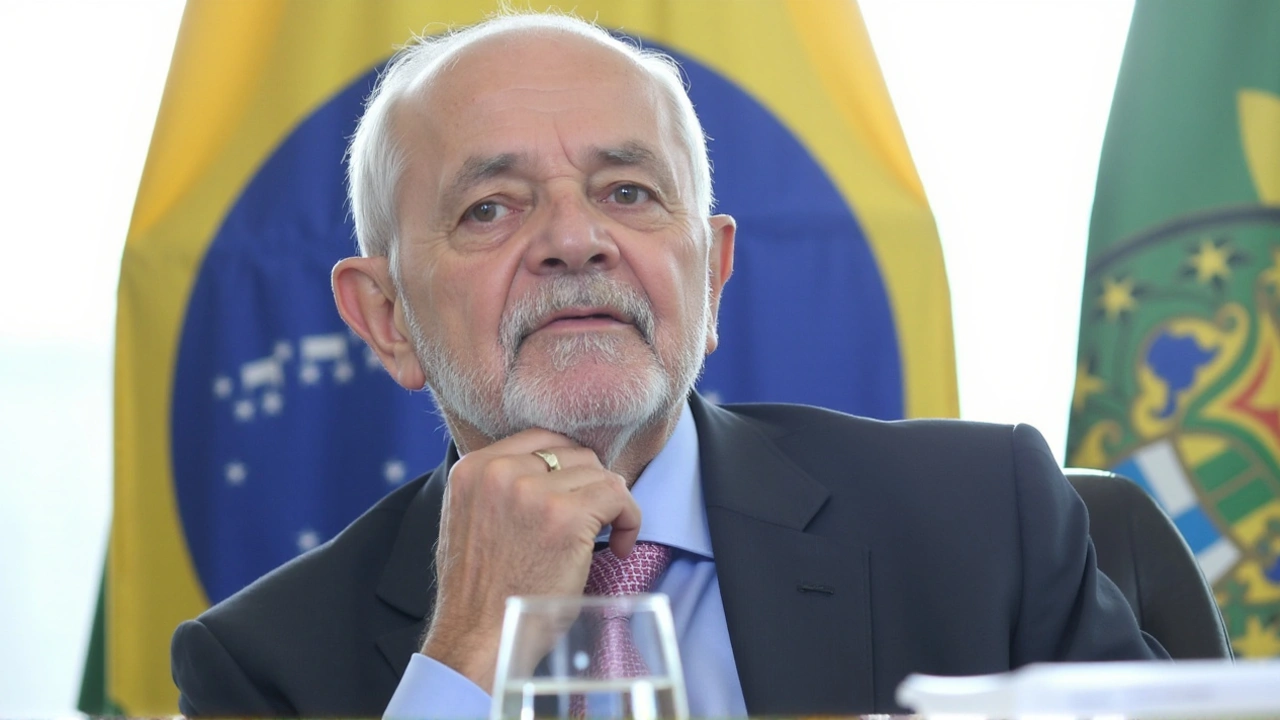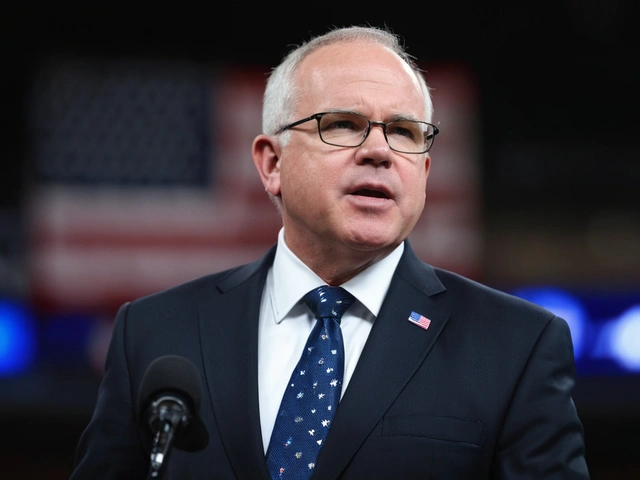The Evolving Role of Brazil on the Global Stage
In recent years, Brazil has emerged as a formidable force in global politics, redefining its position as a bridge between Europe and the Global South. This significant shift is underpinned by Brazil's strategic diplomacy and economic prowess, which have allowed it to carve out a niche as a middle power in an increasingly multipolar world. With President Luiz Inácio Lula da Silva at the helm, the country is embracing a foreign policy of 'active non-alignment' or 'logic of autonomy'. This approach has enabled Brazil to navigate complex international landscapes, asserting itself as an autonomous actor and mediator in global disputes, notably regarding the conflict in Ukraine and tensions within Venezuela. Understanding Brazil's role requires a nuanced appreciation of its geopolitical strategies and aspirations.
Breaking Misconceptions: Brazil's True Alignment
There exists a common misconception among European states that Brazil should automatically support Western initiatives or, conversely, that it has aligned itself with anti-Western blocs spearheaded by powers like China and Russia. Such binary assumptions, however, fail to capture the essence of Brazil's approach on the world stage. Rather than subscribing to rigid alliances, Brazil positions itself within groups like the G20 and BRICS, leveraging its status to influence global discourse and decision-making. This nuanced stance allows Brazil to engage diverse political spheres, asserting its influence as a prominent liberal democracy with formidable economic ties worldwide. The challenge for Europe is to break free from these misguided beliefs and recognize Brazil's capacity as a bridge, connecting different geopolitical entities.
The Strategic Autonomy of Lula's Brazil
President Lula's administration has marked a new phase in Brazil's international engagement, characterized by a pursuit of strategic autonomy. This is not merely symbolic rhetoric but an actionable strategy stemming from Brazil's geographic positioning and economic capabilities. Lula's government seeks to act as an intermediary, not only within Latin America but in wider geopolitical dialogues encompassing contentious issues like the situation in Ukraine. By promoting peace diplomacy and engaging with varying power blocks, Brazil portrays itself as an impartial negotiator, free from the constraints of traditional alignments. This departure from perceived biases presents an opportunity for Europe to partner with Brazil in addressing shared global challenges, from climate change to economic development, albeit respecting Brazil's independent policy trajectory.
Overcoming Diplomatic Hurdles in EU-Brazil Relations
The relationship between the European Union and Brazil is not without its complexities. Historical challenges and policy disagreements have occasionally strained the partnership. The EU's skepticism towards Brazil's involvement in BRICS and its diplomatic initiatives is met with Brazil's perception of Western double standards on issues like conflicts in Gaza and Ukraine. The aftermath of the COVID-19 pandemic exemplified further disconnect, exposing challenges in cooperation and vaccine distribution. To rejuvenate this essential relationship, Europe must look beyond surface-level disagreements and engage with Brazil's legitimate concerns and grievances. It calls for enhanced dialogue, mutual respect, and an understanding of respective policy positions as foundational elements for stronger collaboration.
Laying the Foundation for Future Collaboration
Although the EU and Brazil independently possess limited power to shift global dynamics, they stand to gain significantly by working collaboratively. Identifying areas of mutual interest, such as trade, environmental sustainability, and socio-economic development, could deepen their partnership. By fostering inclusive strategies, examining policy reforms, and facilitating cultural understanding, both parties can achieve meaningful results. Effectively, Europe must learn to 'samba' to Brazil's rhythm, accommodating Brazil's aspirational policies while aligning them with Europe's strategic interests. This cultural metaphor underscores the need for Europe to view Brazil not as a subordinate ally but as a sovereign partner with its own set of priorities and potential contributions to global governance.
Conclusion: Embracing a Strategic Partnership
Engaging with Brazil as a strategic ally rather than insisting on complete alignment reflects a pragmatic approach to international relations. As Brazil rises in regional and global influence, the European Union's ability to appreciate and adapt to Brazil's autonomous policies represents a cornerstone for future diplomatic and economic collaboration. Acknowledging Brazil's multifaceted role as a bridge between diverse political entities allows for a progressive dialogue, ultimately serving broader global interests. The dynamic domain of geopolitics is best navigated through partnerships that respect individuality yet strive for collective advancement. Europe and Brazil can embody this ideal, heralding a new era of strategic diplomacy.







Posts Comments
Emily Nguyen November 15, 2024 AT 23:34
Let’s be real - Brazil isn’t a bridge, it’s a free rider with a fancy UN seat. Lula’s ‘autonomy’ is just code for playing both sides while Europe foots the bill for climate initiatives. BRICS? More like BRICS-adjacent opportunism. The EU should stop treating Brazil like a diplomatic golden child when it’s just leveraging Western tech and markets while cozying up to autocrats. Strategic autonomy? More like strategic hypocrisy.
Ruben Figueroa November 17, 2024 AT 01:50
Wow. So Brazil’s now the UN’s chill uncle who smokes cigars and says ‘I’m neutral’ while taking cash from Moscow and Beijing? 😂 Meanwhile, Europe’s out here trying to fix global warming with reusable tote bags while Brazil’s cutting down the Amazon to export beef to China. 🤡 #LogicOfAutonomy #ClimateHypocrisy
Gabriel Clark November 18, 2024 AT 00:42
The article presents a nuanced and well-researched perspective on Brazil’s evolving diplomatic posture. Its engagement through BRICS and G20 is not a rejection of Western institutions but an expansion of multilateral influence. Brazil’s geographic and demographic heft, combined with its democratic framework, makes it a uniquely positioned actor. The EU’s failure to recognize this stems from outdated Cold War binaries - not Brazil’s ambiguity. True partnership requires acknowledging sovereignty, not demanding alignment.
Elizabeth Price November 19, 2024 AT 03:32
Wait-so Brazil is a ‘bridge’? But it voted against sanctions on Russia, refused to condemn China’s Uyghur policies, and still expects trade deals with the EU? And now we’re supposed to ‘samba to its rhythm’?!!? That’s not diplomacy-that’s emotional blackmail wrapped in a tropical fantasy! The EU should be demanding accountability, not dancing!
Steve Cox November 20, 2024 AT 10:59
Bridge? Nah. More like a tourist taking selfies at every border.
Aaron Leclaire November 21, 2024 AT 19:49
Exactly. The ‘bridge’ metaphor is lazy. Brazil doesn’t connect-it negotiates. It’s not a conduit, it’s a competitor.
Mark Venema November 22, 2024 AT 14:46
While skepticism is healthy, dismissing Brazil’s role as mere opportunism ignores its consistent record of mediating regional conflicts and championing multilateralism. The EU’s frustration stems from its own inability to adapt to a multipolar world. Brazil’s autonomy isn’t a threat-it’s an invitation to evolve beyond transactional alliances. Cooperation requires listening, not lecturing.
Brian Walko November 24, 2024 AT 11:45
Let’s not forget: Brazil is the only Global South nation with the institutional capacity to act as a credible mediator. The EU’s reluctance to fully engage isn’t about Brazil’s policy-it’s about Europe’s discomfort with losing control of the narrative. If we want to solve climate change, food security, or digital governance, we need partners who can mobilize the Global South. Brazil isn’t asking for a seat at the table-it’s building a new one. We should be helping, not hindering.
Write a comment